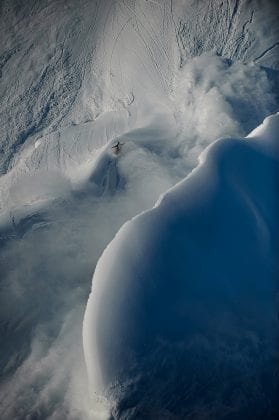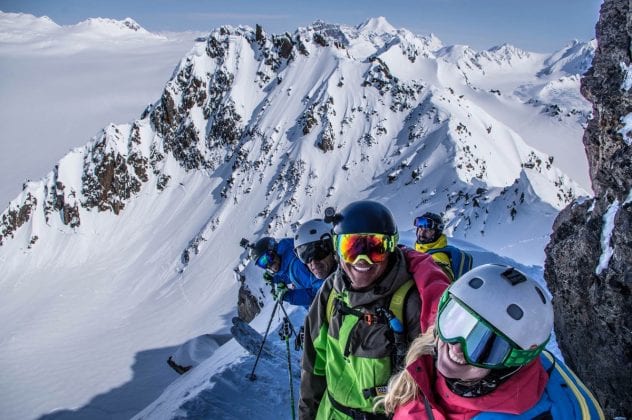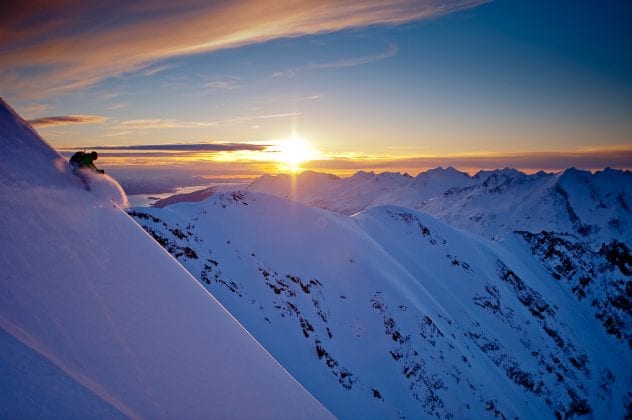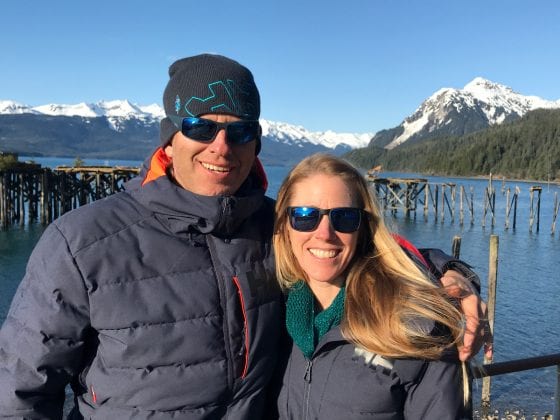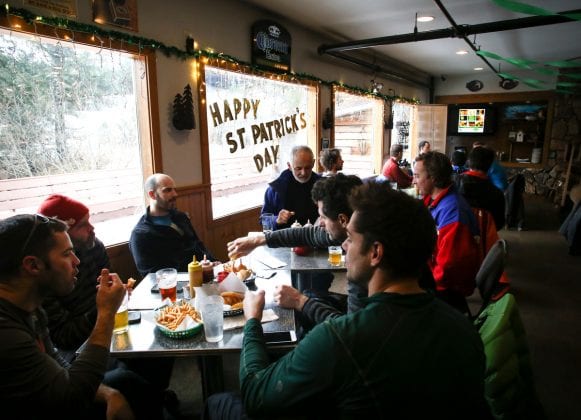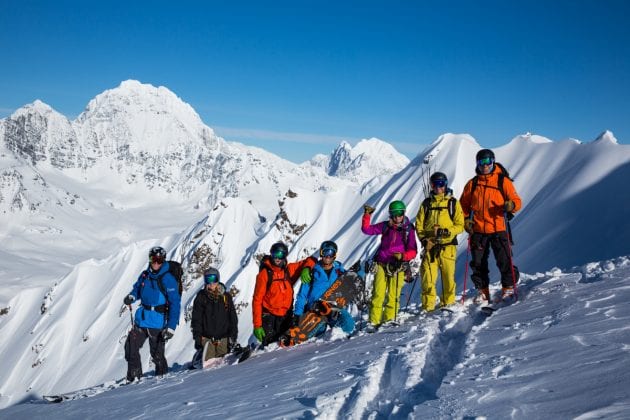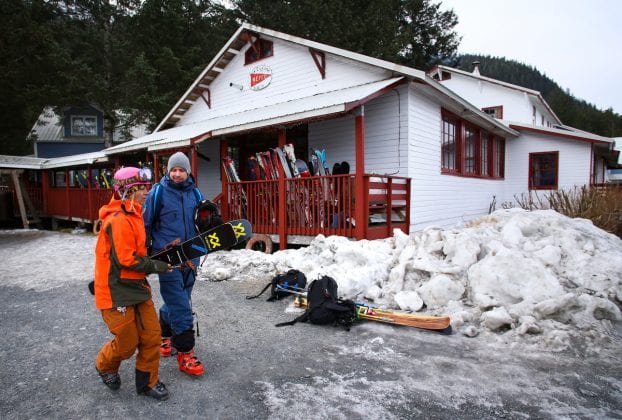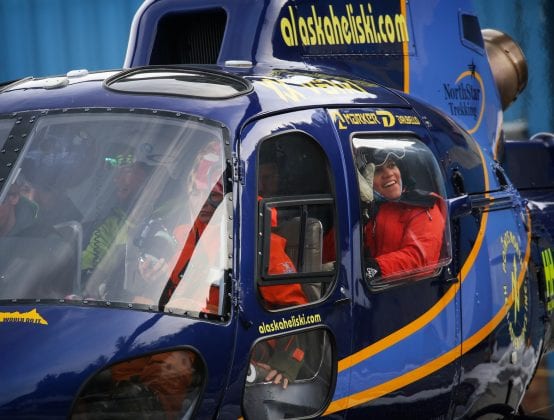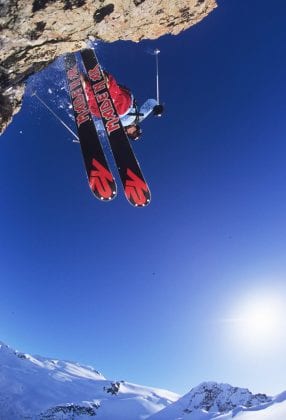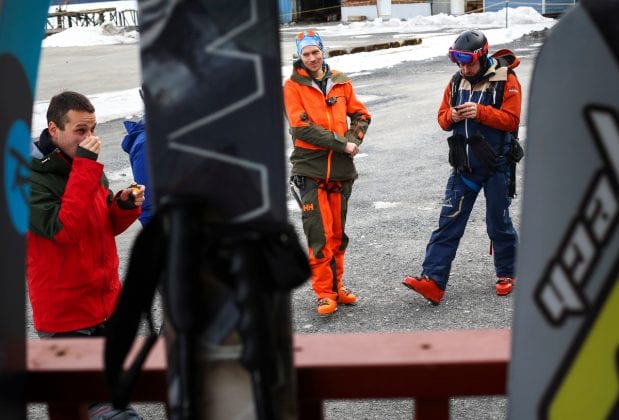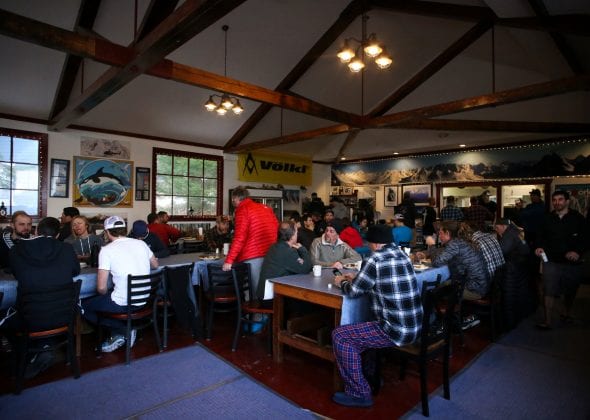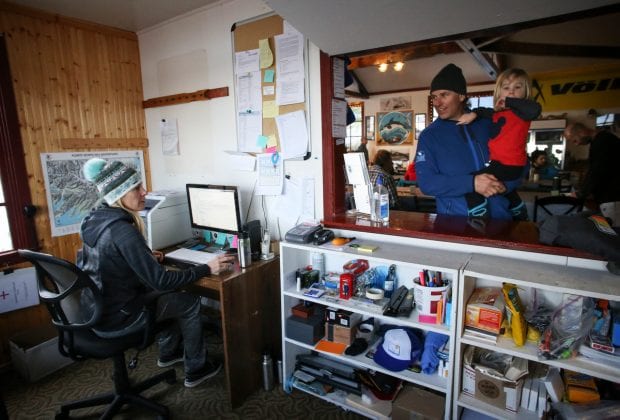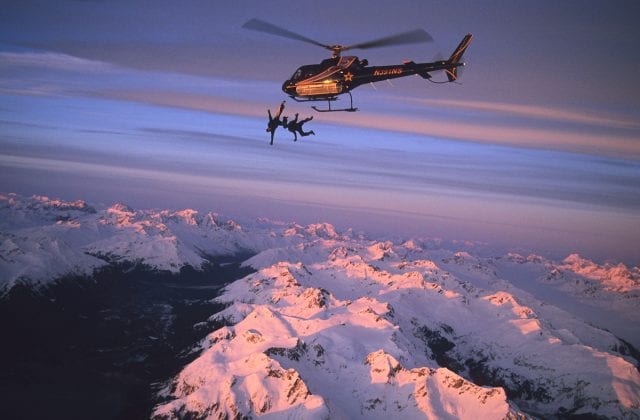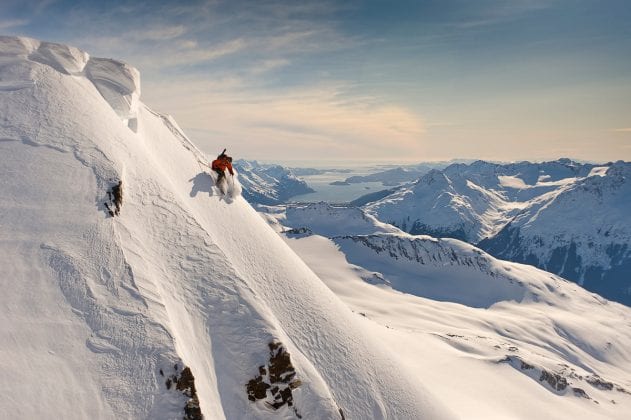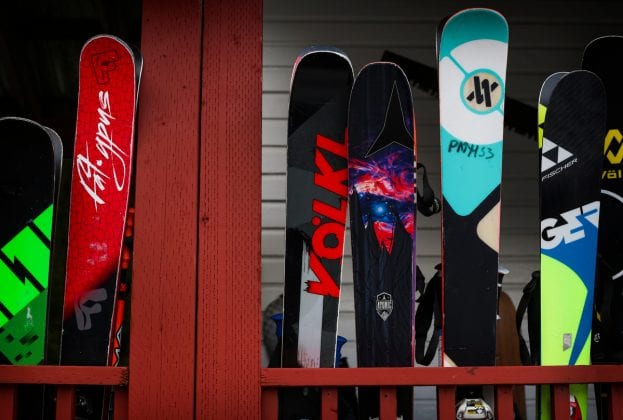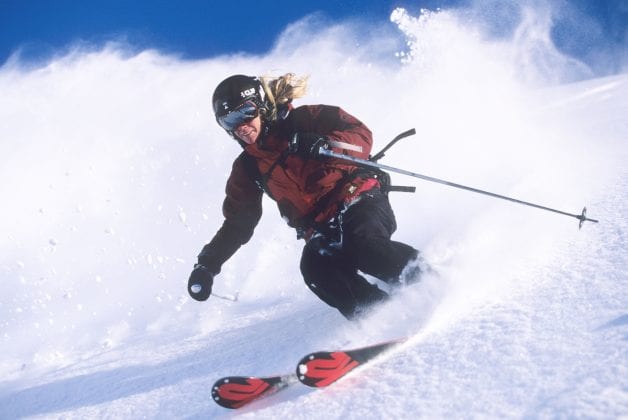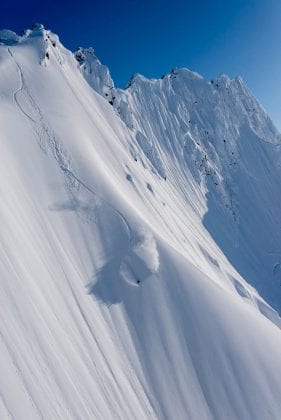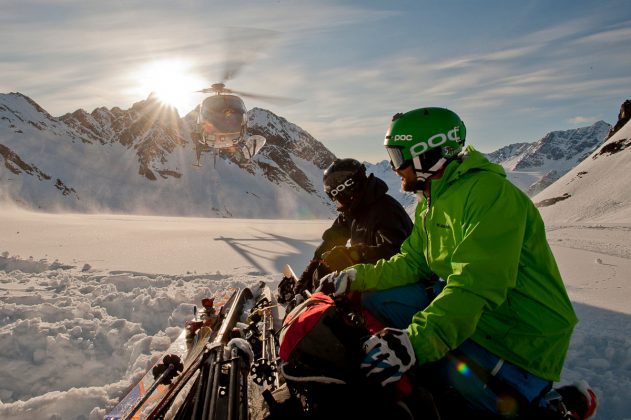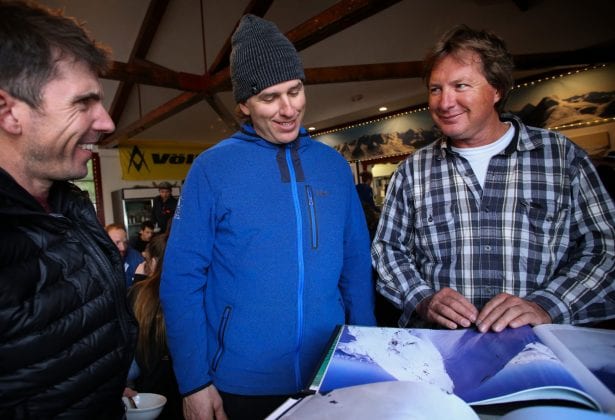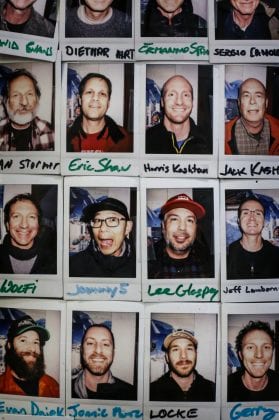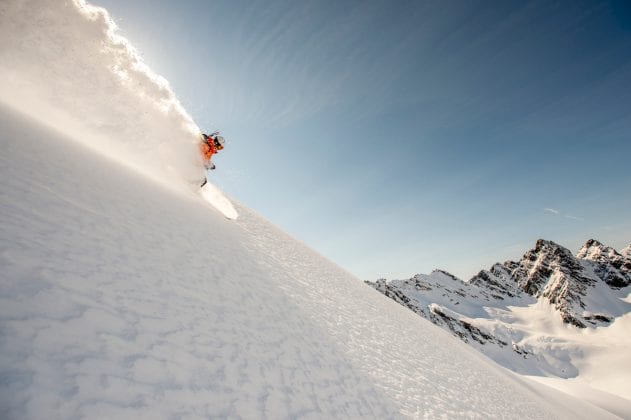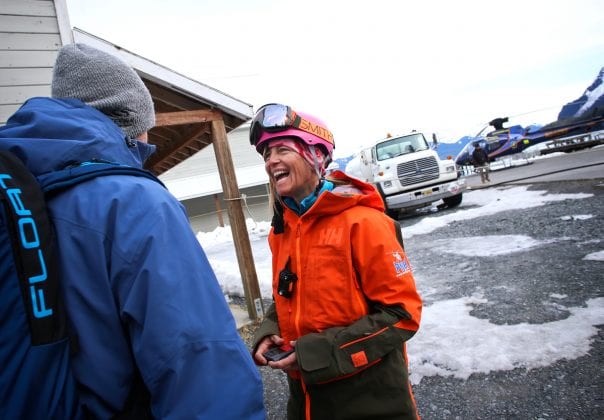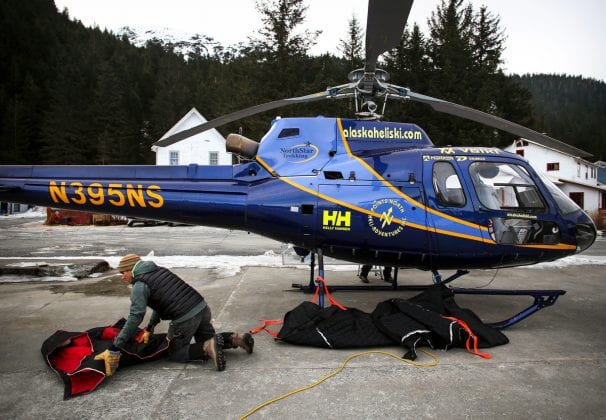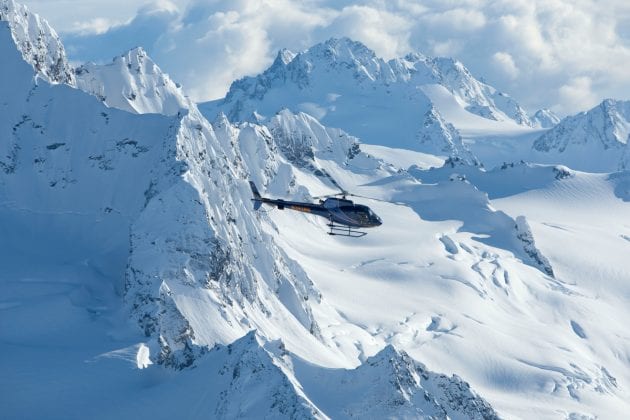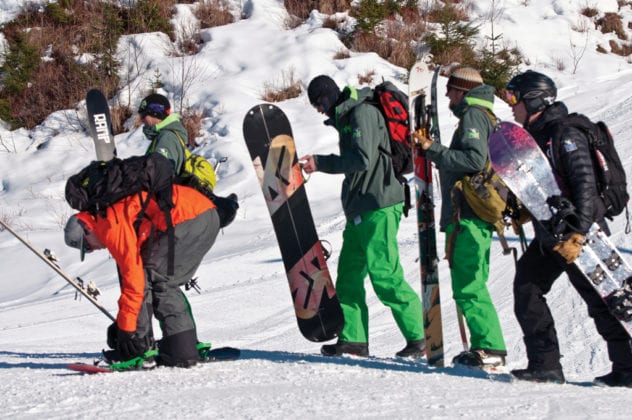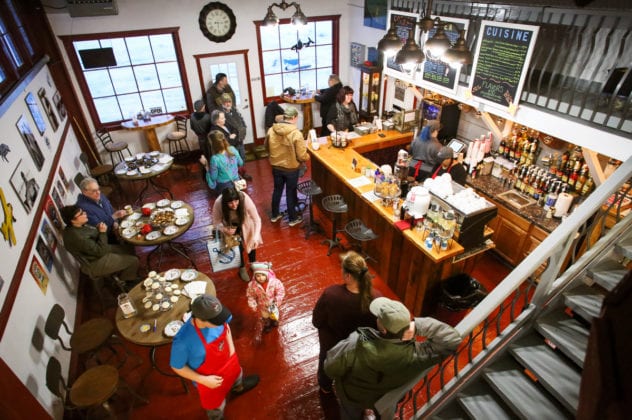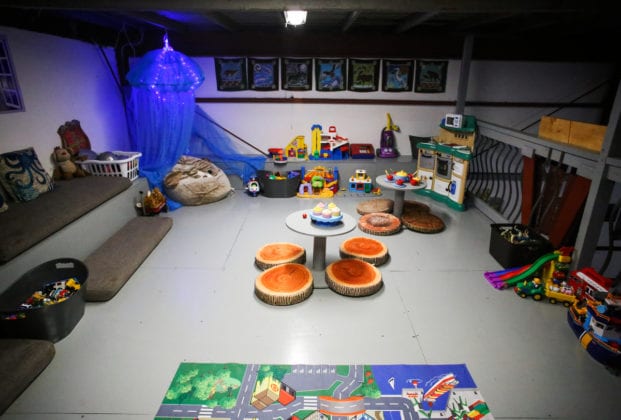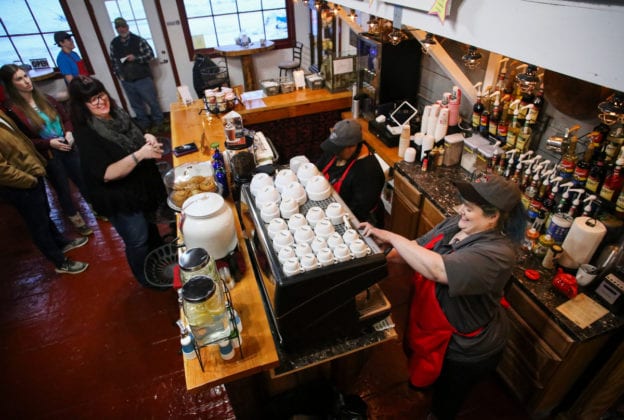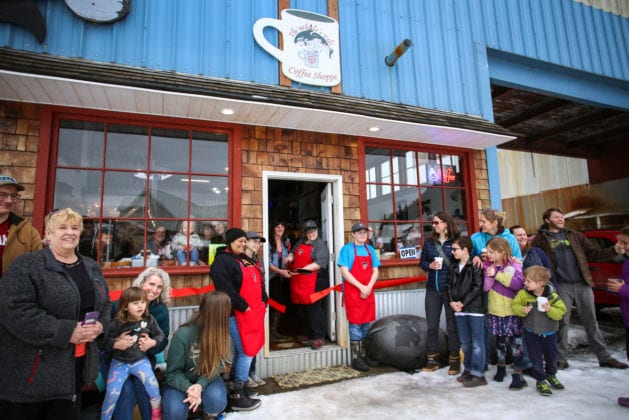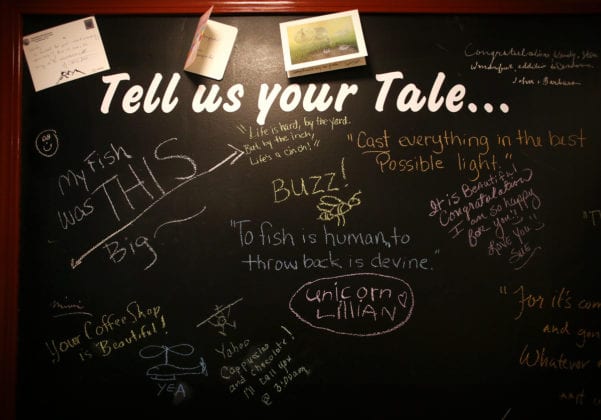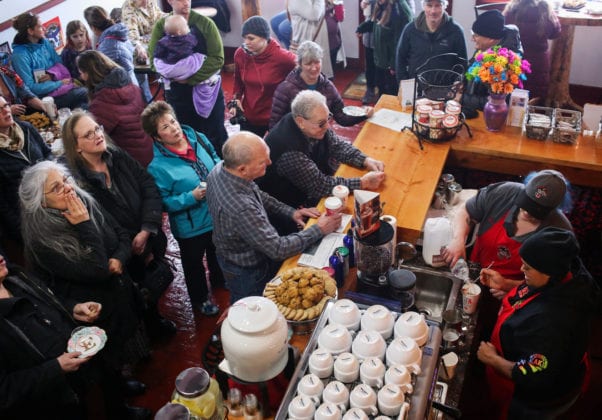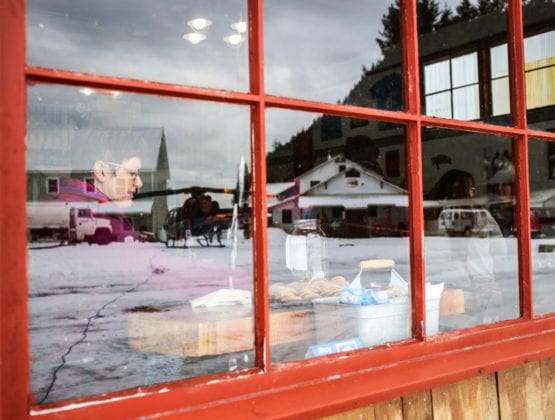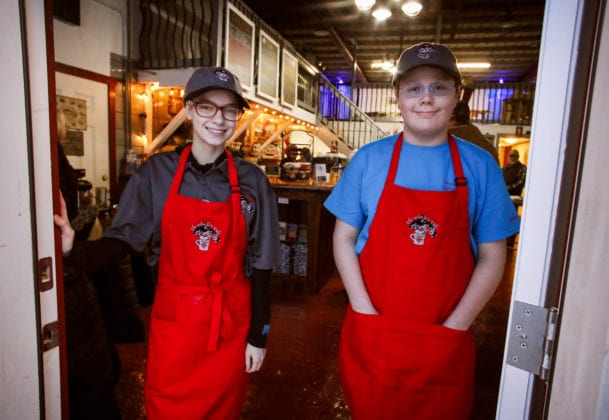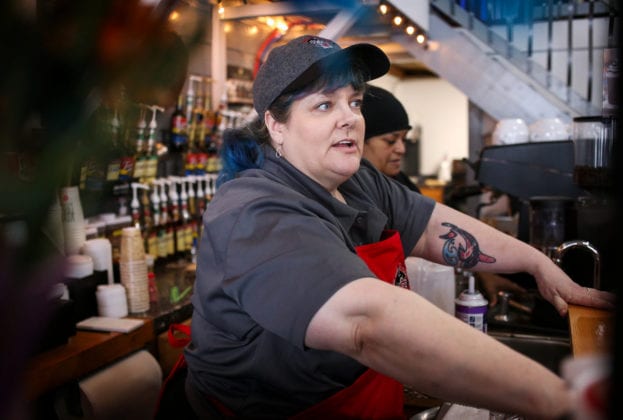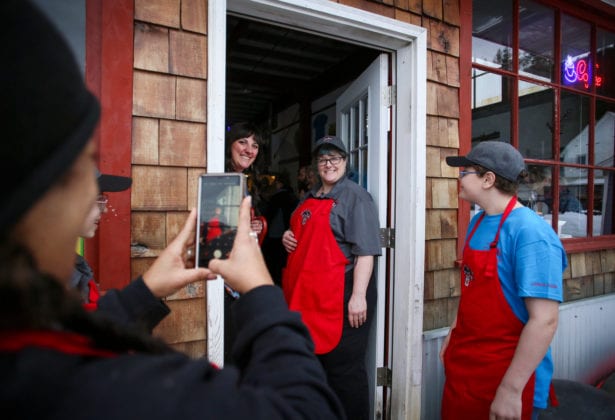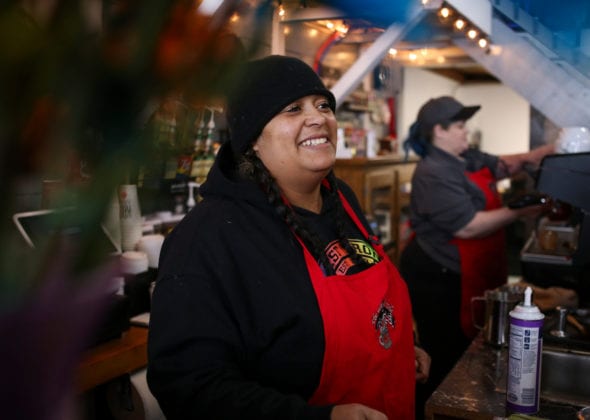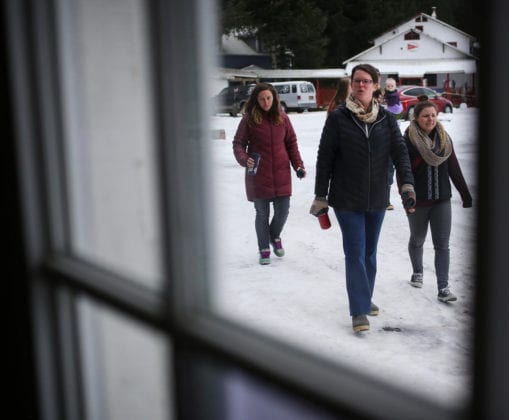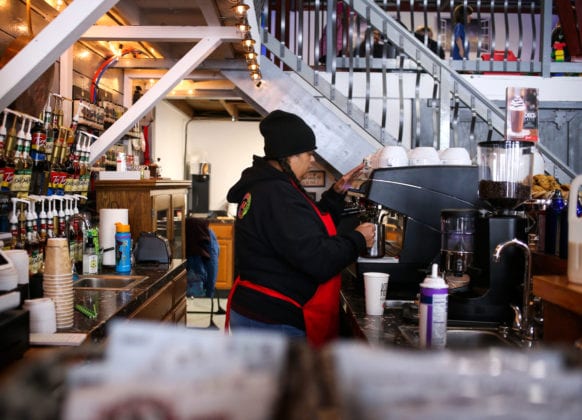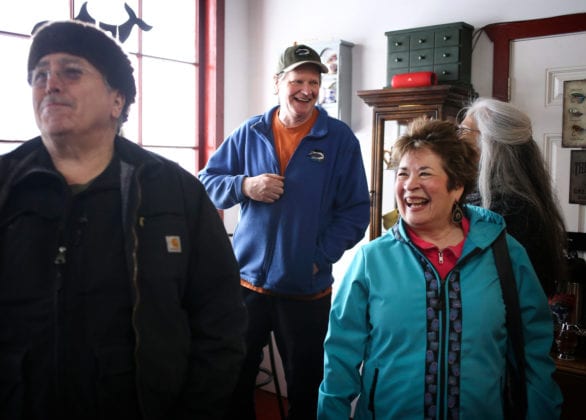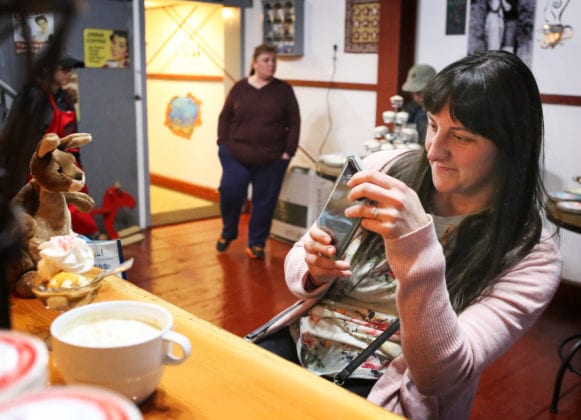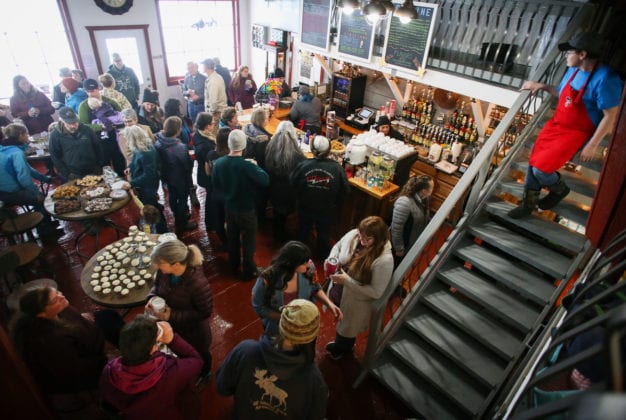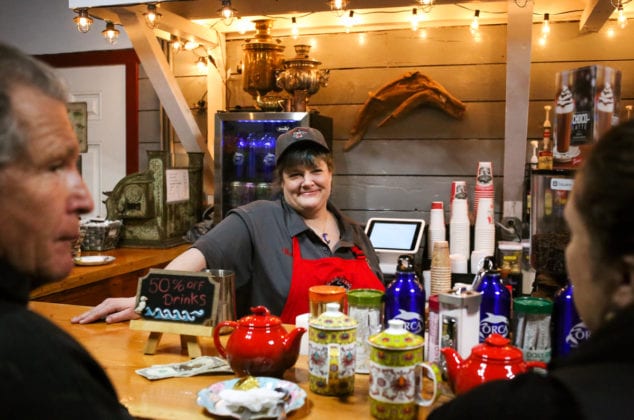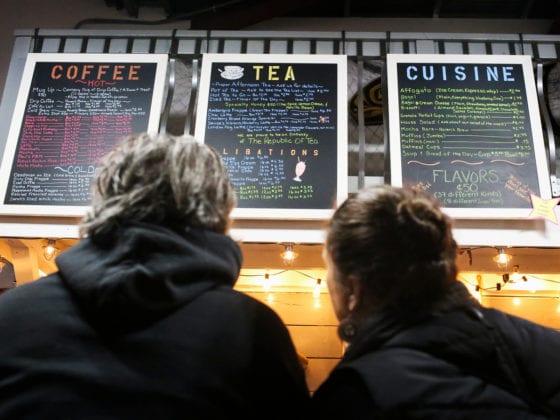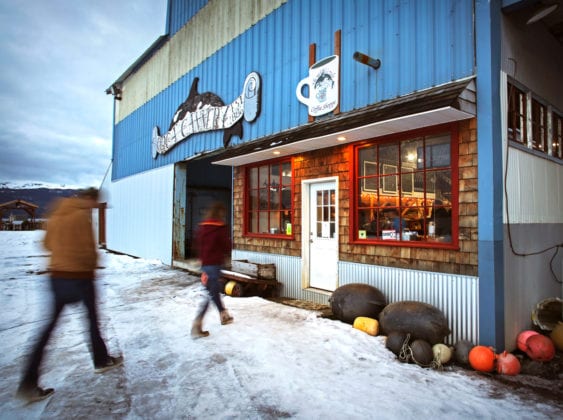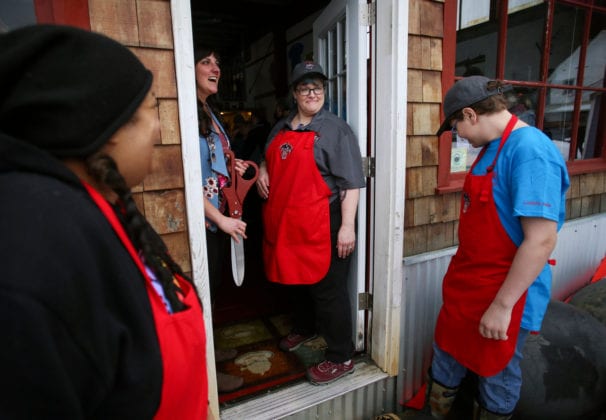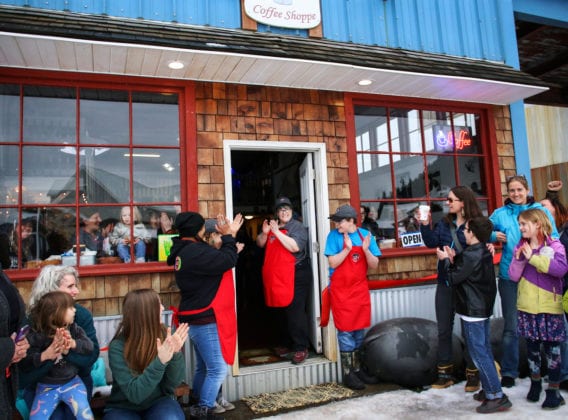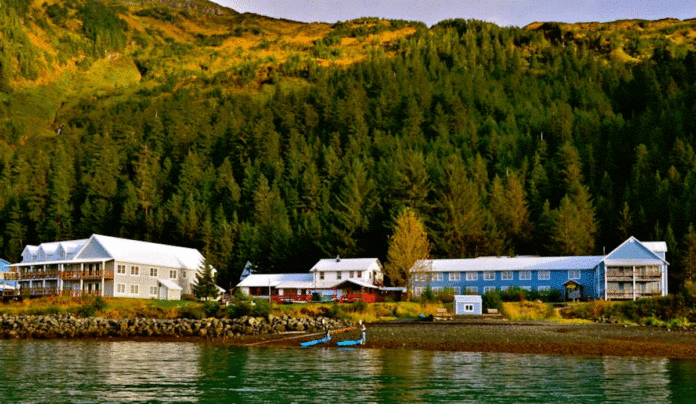
Nestled around the corner from Cordova, Orca Adventure Lodge is a shining example of what energy, creativity and perseverance can do.
Originally built in the 1880s, and at one time the biggest cannery in this area, New England Fish used to process a large portion of the salmon caught in Prince William Sound at Orca, shipping out boatloads of one-pound tall cans of pink salmon at the end of every season.

Alaska State Library collection
Following one particularly big season in the early ’60s, Longshoreman Boss Charlie Nestor was short on hands to load an Alaska Steamship freighter tied along the New England dock, so he recruited a bunch of local high school lads to toss cardboard cases holding 48 cans into its hold.

Alaska State Library collection
Back then, the cases were stacked on pallets, with a forklift hauling them out to dockside. The ship’s system of booms and winches was used to lift and swing the pallets down into the bottom of the hold, which was three “stories” deep. From there, forklifts would ferry the pallets into the deep recesses of the ship, where they were unloaded and stacked by hand.
One of the high school troops hired to perform this task, I remember looking up to see that first pallet come zipping down and thinking this was going to be a job to remember. Two and a half days later, with only brief breaks in between, we were standing level with the top deck of the ship, jumping on cases to try to squeeze more in.
It was a lesson in the work ethic, as well as the mysteries of time-and-half — as well as double-time — pay scales. I often wonder what it must have been like to unload that ship, if it went through rough weather before arriving in Seattle.

Photo by Dick Shellhorn/for The Cordova Times
Today, only a small isolated section of the dock at Orca upon which that freighter tied up still remains. Yet the name Orca, which derived from the name of the sailing ship which brought up supplies to build the original cannery, lives on. As do parts of the former large processing facility.
The Orca Cannery was twice rebuilt following major fires in 1944 and later in the ’70s, but eventually shutdown in the late ’80s, partly due to a botulism scare caused by improperly sealed salmon cans.

Photo courtesy Orca Adventure Lodge
In 1993, Steve Ranney stepped in to purchase it at a bargain rate. At first, it was used primarily for boat storage, but Steve and Wendy Ranney gradually expanded operations centered around recreational opportunities.
Throughout the ensuing years, the Ranneys have remodeled almost all the buildings, and built Orca Adventure Lodge into a topnotch year-round attraction.
The arrival of Kevin Quinn and Points North Heli-Ski operations 21 years ago helped spur development of activities during what was normally the off-season, from late February through early May. Skiers from all over the world now arrive as the fledging business has grown to utilize three top-of-the-line helicopters that ferry as many as 70 skiers per day up to exceptional snow in nearby inland mountains.
But it is the gradual improvement of the original buildings, the addition of several new structures, and the expansion of recreational opportunities that have made it a big attraction.

Photo courtesy Orca Adventures
Still retaining a historic flavor, Orca Adventure Lodge now has 40 guest rooms, and offers guided fishing trips by boat or plane, remote fishing cabins, and hiking, kayaking and glacier tours.
Recently, a third vessel was added to their saltwater guided-fishing fleet, and the addition of a facility to custom-process, freeze and smoke fish is almost complete.
In response to the erosion of the Copper River Highway which has eliminated access to the Million Dollar Bridge and Childs Glacier, Orca Adventure is currently in the process of developing helicopter tours to the glacier as part of their services.
Wendy Ranney also recently opened The Whale’s Tale, a coffee and tea shop that is popular with both locals and visitors. The nearby former cannery mess hall serves fine cuisine for visitors as part of their tour package, while also providing a popular location for weddings and other large gatherings.
Online sites have noted the quality of their services. For example, in 2017, Orca Adventure Lodge received a Certificate of Excellence from the popular TripAdvisor website.
Visitors post quotes such as: “My favorite things were the food, the people, and the unique setting;” “The location was amazing with a view from the window;” and “Best place for fishing and wildlife adventures.”
Once the site of buildings stuffed with noisy machinery and huge retorts operated by hundreds of summer employees to produce all those cans of salmon that were a part of early Alaska’s history, who would have thought that the Orca cannery would someday become a sports fishermen and adventure seeker’s heaven, thanks to the dedication, foresight and just plain hard work of the Ranneys and their employees.

Photo by Dick Shellhorn/for The Cordova Times

